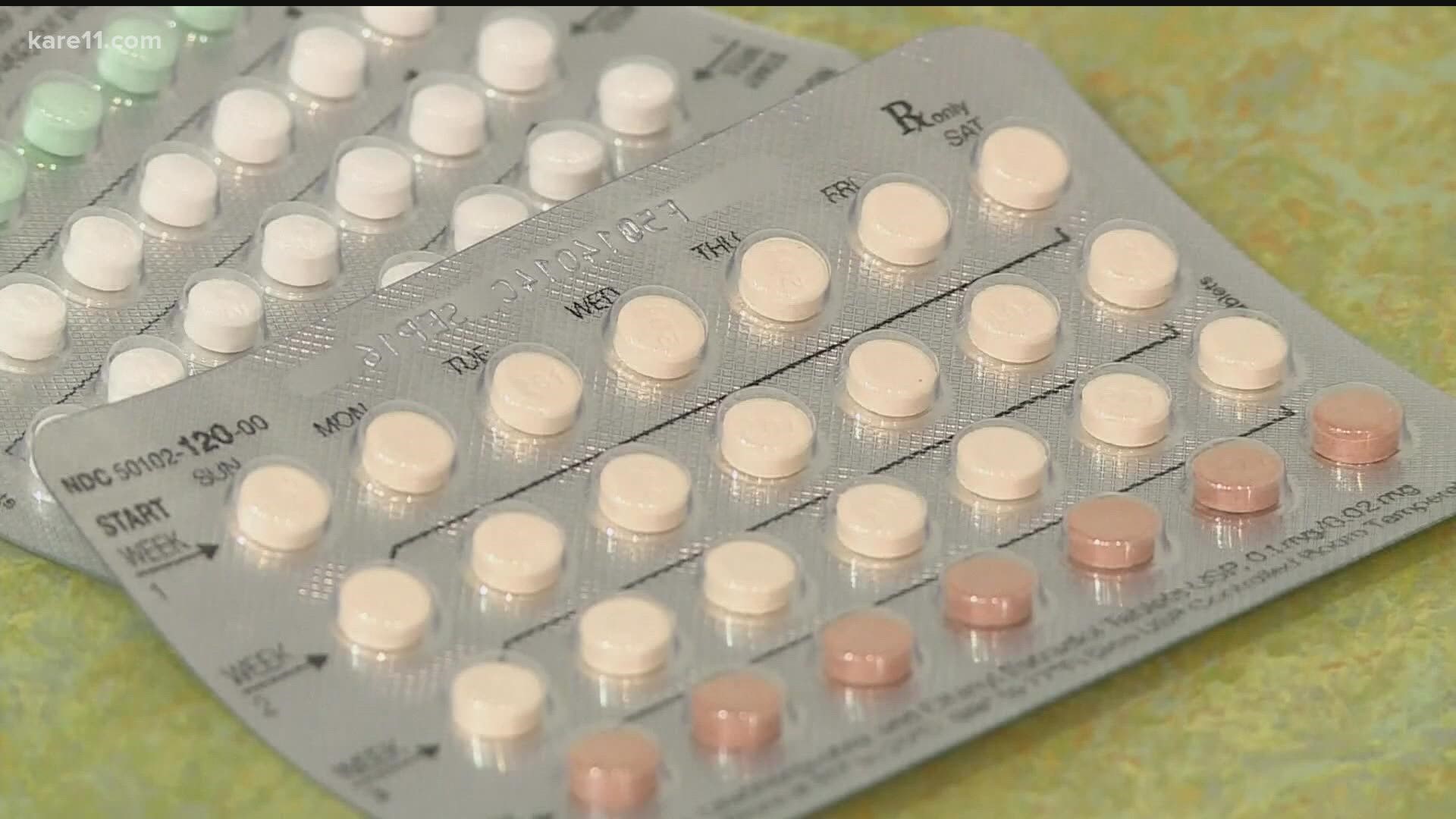MINNEAPOLIS — You may have noticed your pharmacy visit looks a little different these days. Because of COVID surges and staffing issues, the pharmacy you go to may have limited hours or be temporarily closed.
And that's making the problem of contraceptive deserts even worse.
"What a contraceptive desert means is an area of the country where it's very difficult for a woman to access contraception," said Dr. Nancy Shannon with Nurx.
For example, a "desert" could mean it takes more than 30 minutes to drive to see a provider.
"It's crazy that in the United States, there are 19 million women that live in contraceptive deserts," said Shannon. "And even just within the state of Minnesota, there are close to 300,000 women."
Contraception can mean pills, patches, rings, etc.
Dr. Shannon went on to say that this mainly impacts women in rural areas, but women in urban areas can feel the effects too. She says that's why Telehealth has become so important, especially during the pandemic.
"We could give them access to really everything in terms of their options. Except, of course, an IUD or long-term surgery," said Shannon.
All you have to do is answer a few health questions and a licensed provider reviews the information with you and then writes a prescription. The prescription is sent to a partner pharmacy that delivers it by mail. With emergency contraception like plan B, they can ship that overnight.
"Even since COVID, we've seen a 50% increase in [online] birth control prescriptions," said Shannon. "We've become more comfortable with the concept that there are so many conditions that you don't need to go into a doctor's office for."
Shannon says she doesn't think contraceptive deserts will go away anytime soon. But she's optimistic that as telehealth expands, it could help solve the problem.
"Women need choices. And in order to have those choices, we have to have healthcare available," said Shannon.
More information about family planning during the COVID-19 pandemic from the CDC is available here.
Watch the latest coverage from the KARE11 Sunrise in our YouTube playlist:

